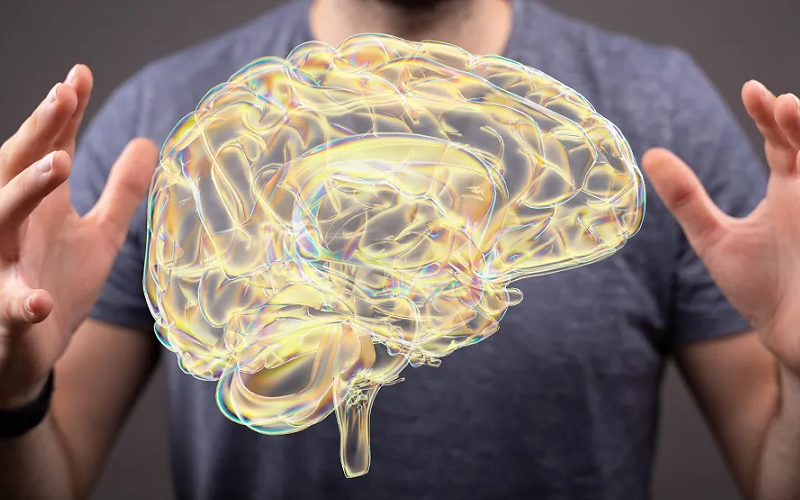
As we age, our cognitive health becomes a paramount concern, with the pursuit of mental clarity and memory retention taking center stage. In this landscape, nootropics – often referred to as ‘smart drugs’ or cognitive enhancers – emerge as a beacon of hope. Traditionally celebrated for boosting memory, focus, and overall brain function in younger adults, a special category of these compounds, known as longevity nootropics, is gaining attention for its potential benefits in aging populations.
Contents
Understanding the Aging Brain
As we go on our journey to understand longevity nootropics, it’s crucial to first grasp the intricacies of the aging brain. The process of aging brings about a myriad of changes, especially within our cognitive functions.
Cognitive Changes in the Elderly
The brain, like any other organ, undergoes significant transformations as we age. These changes can impact various aspects of cognition. Memory, both short-term and long-term, often experiences noticeable shifts. Many elderly individuals report increased difficulty in recalling names, dates, or recent events. However, it’s important to note that these changes are a normal part of aging and do not necessarily indicate severe cognitive impairments.
Processing speed is another aspect that tends to slow down. Older adults might find that they need more time to understand new information or perform complex tasks. Additionally, executive functions, which include planning, organizing, and problem-solving skills, can also be affected. Despite these changes, many aspects of intelligence, such as vocabulary and general knowledge, often remain stable or even improve with age.
Common Neurological Issues in Older Adults
While aging is a natural process, it can sometimes lead to or coincide with various neurological issues. Conditions such as Alzheimer’s disease and other forms of dementia are more prevalent in the elderly. These diseases go beyond the normal scope of aging, leading to significant impairments in memory, reasoning, and functional abilities.
Age-related cognitive decline, which is less severe than dementia, is also common. This condition involves gradual memory loss and cognitive slowing that does not interfere drastically with daily life but might be noticeable to the individual and their close ones.
Moreover, older adults are at an increased risk of strokes, which can impact cognitive functions depending on the severity and location of the stroke in the brain. It’s important to recognize these conditions early on for appropriate management and treatment.
The Role of Neuroplasticity
One of the most fascinating aspects of the brain is its ability to adapt and change – a phenomenon known as neuroplasticity. This ability doesn’t cease as we age; in fact, it plays a crucial role in maintaining cognitive health in our later years.
Neuroplasticity refers to the brain’s capacity to form new neural connections throughout life, allowing for the learning of new skills and adaptation to new situations or changes caused by injury. In the context of aging, encouraging neuroplasticity can help mitigate the effects of cognitive decline. Activities that challenge the brain, such as learning a new language, playing a musical instrument, or engaging in complex problem-solving tasks, can be particularly beneficial.
Additionally, research suggests that a lifestyle incorporating physical exercise, social interaction, and a healthy diet can support brain health and enhance neuroplasticity. These findings provide a hopeful perspective on aging, suggesting that our lifestyle choices play a significant role in maintaining cognitive health as we age [1].

The Concept of Longevity Nootropics
Having explored the changes and challenges associated with the aging brain, we now turn our focus to a promising solution: longevity nootropics. These compounds are not just about enhancing cognitive function in the short term but are also focused on promoting long-term brain health and aging well. In this section, we will define longevity nootropics, distinguish them from traditional nootropics, and explore their potential benefits for older adults.
Definition and Purpose of Longevity Nootropics
Longevity nootropics are a subset of nootropics specifically formulated to support the cognitive health of aging individuals. While traditional nootropics are known for their ability to enhance memory, focus, and learning in the general population, longevity nootropics are designed with the elderly in mind. Their primary purpose is not only to improve cognitive function but also to protect the brain from age-related decline and damage. These compounds often contain antioxidants, neuroprotective agents, and ingredients that support brain cell repair and regeneration.
Distinction of Longevity Nootropics from Traditional Nootropics
The key difference between longevity nootropics and traditional nootropics lies in their target demographic and long-term objectives. Traditional nootropics are typically used by younger individuals looking for an immediate boost in cognitive performance, such as improved concentration or memory for studying or work [2].
In contrast, longevity nootropics are formulated to address the specific needs of the aging brain. They focus on sustaining and enhancing brain health over a longer period, reducing the risk of neurodegenerative diseases, and improving quality of life in the golden years.
Longevity Nootropics Potential Benefits for the Elderly
Longevity nootropics offer a range of potential benefits for the elderly. These include enhanced memory and recall, improved focus and attention, and better overall cognitive function. Additionally, they may help in slowing the progression of age-related cognitive decline and possibly reducing the risk of developing neurodegenerative diseases. Some longevity nootropics also aim to improve mood and reduce anxiety, contributing to a better overall sense of well-being in older adults.
Many of these nootropics contain ingredients that support brain health at a cellular level, such as promoting neuronal growth, improving blood flow to the brain, and protecting against oxidative stress. This holistic approach to brain health underscores the potential of longevity nootropics as a significant tool in managing the cognitive aspects of aging.
Popular Longevity Nootropics
Building upon our understanding of the concept of longevity nootropics, it’s time to delve into some of the most popular and scientifically backed options in this category. These nootropics have been selected for their potential benefits in supporting cognitive health in older adults, with a focus on enhancing memory, mental clarity, and overall brain function.
Overview of Key Nootropics
Ginkgo Biloba
Ginkgo Biloba is one of the oldest living tree species and has been used in traditional medicine for centuries. It’s renowned for its ability to improve blood circulation to the brain, which in turn can enhance cognitive function. This herb is particularly noted for its potential in improving memory and concentration, as well as possibly reducing the risk of dementia and Alzheimer’s disease in the elderly.
Omega-3 Fatty Acids
Omega-3 fatty acids, particularly found in fish oil, are crucial for brain health. They play a vital role in maintaining the integrity of cell membranes in the brain and have been associated with reduced rates of cognitive decline. Regular intake of omega-3s is believed to support memory, reduce inflammation, and potentially protect against Alzheimer’s disease [3].
Huperzine A
Derived from Chinese club moss, Huperzine A is known for its ability to improve memory and cognitive functions. It works by increasing levels of neurotransmitters in the brain. Its use is particularly promising in the treatment and management of Alzheimer’s disease.
Bacopa Monnieri
An herb commonly used in Ayurvedic medicine, Bacopa Monnieri is believed to enhance brain function, improve memory and attention, and reduce stress and anxiety. It may also have neuroprotective properties.
Phosphatidylserine
This fatty substance is vital for cognitive function and is naturally found in the brain. Supplementing with phosphatidylserine has been shown to improve memory, language skills, and attention in older adults. It’s particularly beneficial in managing age-related cognitive decline.
Scientific Evidence Supporting Each Nootropic
Each of these nootropics has been the subject of numerous studies. For instance, clinical trials have shown that Ginkgo Biloba can effectively enhance cognitive function and reduce symptoms of dementia. Omega-3 fatty acids have been extensively studied for their neuroprotective effects and are consistently linked to improved cognitive health in the elderly.
Huperzine A has shown promise in clinical trials for improving cognitive function in individuals with Alzheimer’s disease. Similarly, Bacopa Monnieri’s ability to enhance memory and cognitive performance has been supported by various studies. Phosphatidylserine has been found to improve cognitive functions and memory, especially in the context of age-related decline [4].
Recommended Dosages and Forms of Nootropics
When considering these nootropics, it’s important to pay attention to recommended dosages and forms. For example, Ginkgo Biloba is often taken in doses of 120-240 mg per day, while fish oil supplements should contain a balanced ratio of EPA and DHA, the two key types of omega-3 fatty acids.
Huperzine A is typically taken in smaller doses, often around 50-200 mcg daily. Bacopa Monnieri’s recommended dosage varies, but it’s generally taken in 300-450 mg per day. For Phosphatidylserine, a dose of 100-300 mg daily is common.

Lifestyle and Diet for Cognitive Health
While longevity nootropics offer substantial benefits, they are most effective when complemented with a healthy lifestyle and diet. This holistic approach is crucial for maximizing cognitive health, especially in the golden years [5].
The Importance of a Balanced Diet
A nutritious diet plays a fundamental role in maintaining cognitive health. Foods rich in antioxidants, vitamins, and minerals can protect the brain from oxidative stress and inflammation, which are known contributors to cognitive decline. Key dietary elements include:
- Omega-3 Fatty Acids: Found in fish, nuts, and seeds, these are essential for brain health.
- Fruits and Vegetables: A rich source of antioxidants and essential nutrients.
- Whole Grains: They provide a steady supply of energy to the brain.
- Lean Proteins: Important for the repair and growth of brain cells.
Hydration is equally important. Adequate water intake supports overall brain function and concentration.
Physical Exercise and Brain Health
Regular physical activity is another pillar of brain health. Exercise not only improves blood flow to the brain but also releases endorphins, which can boost mood and reduce stress. Aerobic exercises, in particular, have been shown to promote neurogenesis (the growth of new brain cells) and enhance neuroplasticity.
Strength training, balance exercises, and yoga also contribute to cognitive health by improving overall physical health, balance, and flexibility, which are important for maintaining independence and well-being in later life.
Mindfulness and Mental Exercises
Engaging in mental exercises is just as important as physical ones. Activities that challenge the brain, such as puzzles, reading, learning a new skill, or even engaging in social activities, can enhance cognitive functions and encourage neuroplasticity.
Mindfulness practices like meditation and deep breathing exercises can reduce stress, improve concentration, and promote a sense of calm. These practices have been linked with reduced age-related cognitive decline and improved emotional well-being.
References
[1] Brain Ageing, Cognition and Diet: A Review of the Emerging Roles of Food-Based Nootropics in Mitigating Age-Related Memory Decline
[2] Can a Pill Really Help You Live Longer?
[3] How Silicon Valley Is Trying to Hack Its Way Into a Longer Life
[4] Is reverse aging already possible? Drugs that could treat aging might already be on the pharmacy shelves
[5] How To Optimize Brain Health For Longevity

